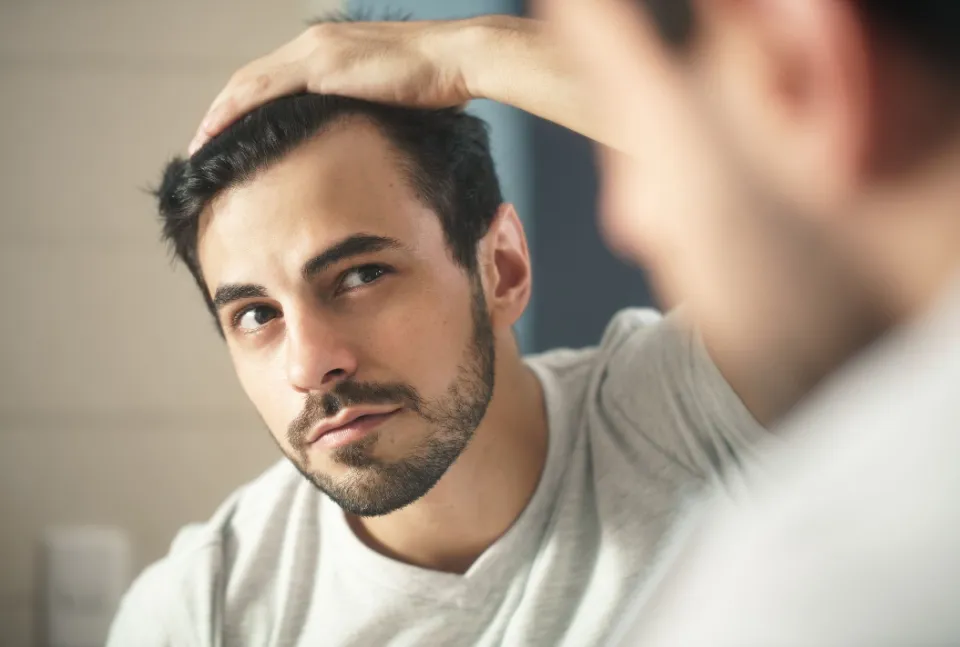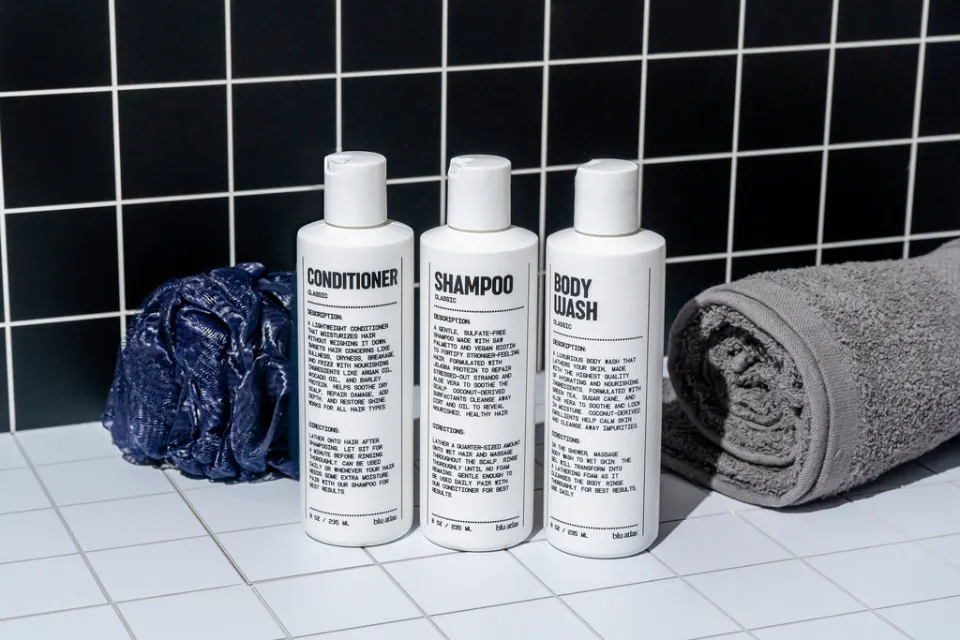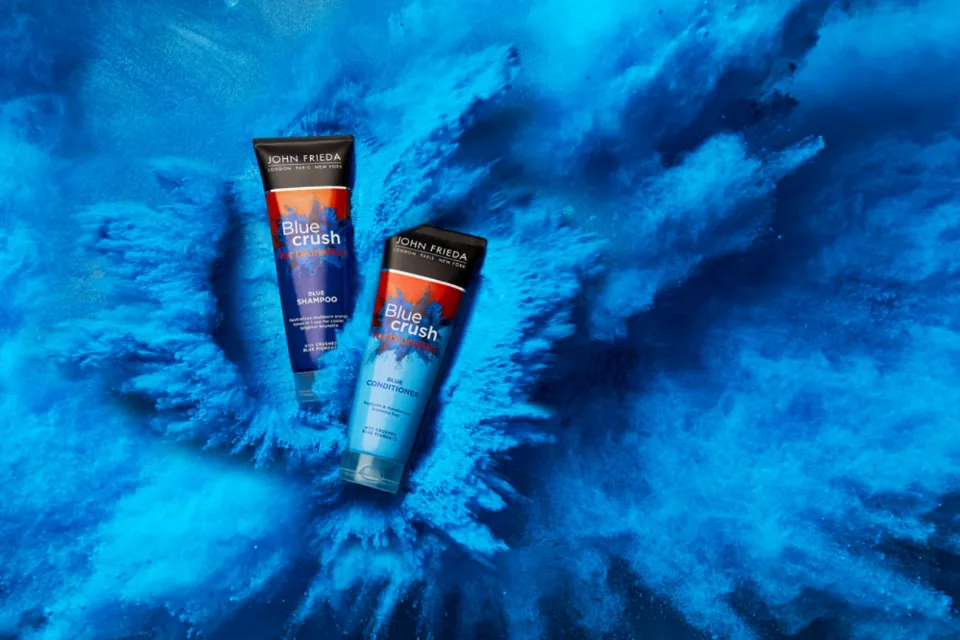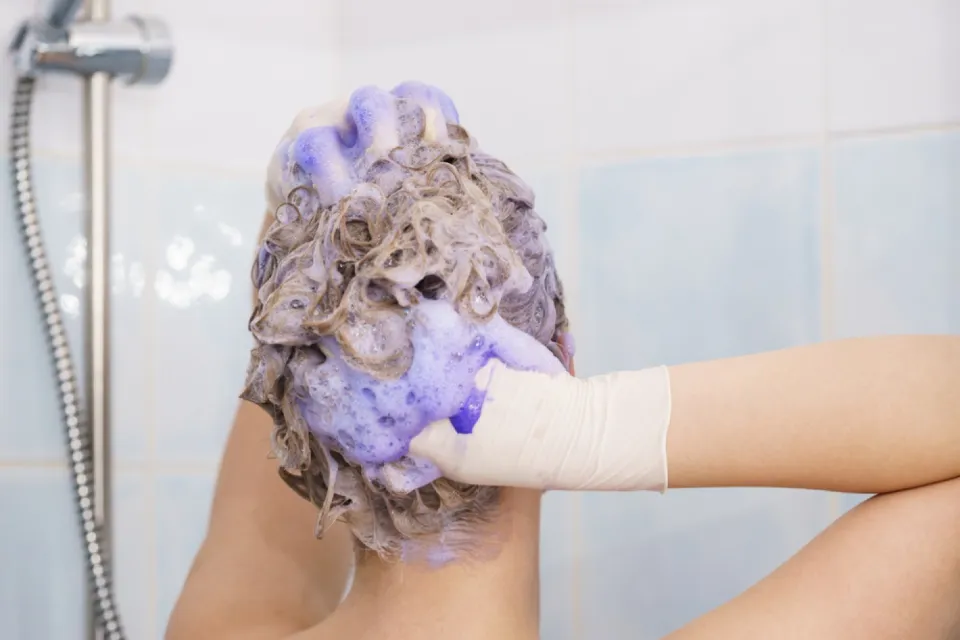Anabolic steroids, often referred to simply as “steroids”, are usually taken for building muscle mass. But do steroids cause hair loss?
The type of steroid you use will determine the answer. Some steroids can even accelerate male pattern baldness for individuals who are genetically predisposed to the hair loss condition.
Continue reading to learn more and to read an in-depth discussion of this.
Do Steroids Cause Hair Loss?
The simple answer to this question is: it depends on the steroid.
Hair loss may be exacerbated by some corticosteroids. Hair thinning on the scalp is listed as a potential side effect in the FDA information for corticosteroids like prednisolone. Although it is not a frequent side effect of prednisolone, you should be aware of it.
However, in some instances, the opposite might also be true. Prednisolone may have a number of side effects, including—you guessed it—increased hair growth, according to the National Library of Medicine (NLM).
Anabolic steroids are the flip side of this. Just like synthetic testosterone, anabolic steroids can have a significant impact on your hair.

Anabolic steroids are frequently prescribed to treat hormonal imbalances and can aid in the treatment of illnesses that result in muscle loss, but they are also frequently abused by athletes to gain an edge in competition.
It’s a bad idea because these steroids can interfere with a variety of processes, including, yes, hair growth. These processes include brain and sexual function.
Anabolic steroids have some nasty side effects for people who don’t need them for medical reasons, and they simultaneously cause hair loss in men and hair growth in women.
You Might Also Like:
- Do Beanies Cause Hair Loss?
- Do Statins Cause Hair Loss?
- Does Pomade Cause Hair Loss?
- Does Cocaine Cause Hair Loss?
- Does Alcohol Cause Hair Loss?
- Does Mounjaro Cause Hair Loss?
- Does Creatine Cause Hair Loss?
- Does Dandruff Cause Hair Loss?
- Does Zinc Help With Hair Loss?
- Does Wellbutrin Cause Hair Loss?
- Does Hard Water Cause Hair Loss?
- Does Dry Shampoo Cause Hair Loss?
- Can Lack of Sleep Cause Hair Loss?
- Does Wearing a Hat Cause Hair Loss?
- Does Drinking Energy Drinks Cause Hair Loss?
How Steroids Affect Hair?
Both anabolic and corticosteroids have been linked to hair loss, and in some cases, this hair loss can be permanent.
There are a few different mechanisms by which steroids can cause hair loss.
First, the growth of new hair cells can be hampered by steroids.
Second, steroid use can kill hair follicles that are already alive.
Finally, steroids may boost the production of hormones linked to hair loss.
The good news is that these effects are typically temporary. Even if steroids do cause hair loss, it usually only lasts a short time and returns once you stop taking them.
How to Fix Steroid-related Hair Loss?
There are several ways to stimulate hair growth. Some treatment options you may wish to consider include:
- As finasteride specifically regulates and controls the elevation of the DHT hormone in men, it can be prescribed to treat hair loss brought on by steroid use. According to research, finasteride does not appear to have a noticeable enough effect in women to warrant higher doses, which would exacerbate side effects.
- Minoxidil is another medication that can be used to stimulate hair regrowth after steroid-related hair loss, either in a topical form, or an oral form.
- Shampoos with caffeine can promote hair growth. According to research, a topical solution containing caffeine is more efficient when used for a longer period of time.
- A hair transplant, such as an FUE or FUT, may help those who are taking medication to stimulate hair regrowth but still lack hair regrowth in specific areas or for whom medication has not proven effective.
How to Prevent Steroid-related Hair Loss?
There are a few ways in which you can prevent, lessen, or fix steroid-related hair loss.
It’s crucial to remember, though, that in some circumstances, natural regrowth may not be possible.
In order to get the best preventative advice, you should always speak to your doctor if you are worried about steroid-related hair loss.
- If you haven’t had them prescribed specifically for you, avoid taking steroids. The side effects of abusing steroids can be very harsh on the body, and they might not be compatible with your system. Infertility, severe acne, gynecomastia, and, in some rare circumstances, prostate cancer are all side effects of steroid abuse in men. In women, side effects include: loss of breasts, deepened voice, problems with the menstrual cycle, and increased hair growth [16]
- Understand that dosages may need to be adjusted or the prescription medication changed in order to avoid or lessen hair loss
- Adopt a healthy lifestyle and take care of your hair and scalp.
The Bottom Line: Do Steroids Cause Hair Loss
It’s time to show those who use illegal steroids some tough love.
No steroid should be taken without the supervision of a healthcare provider, and even if you have done so for some reason (stop), you should report any side effects right away to a healthcare provider for your own safety.
Hair loss has a variety of causes, including lifestyle and other conditions, but using steroids without a prescription can be way more trouble than it’s worth.
Not everyone experiencing hair loss is doing something wrong, of course, and for anyone seeing side effects to necessary medication, there are resources available.
Read More: Which Vitamin Deficiency Causes Hair Loss?
FAQs
Will Hair Loss from Steroids Grow Back?
The good news is that your hair loss might eventually stop if you stop taking steroids.
When Does Prednisone Hair Loss Stop?
A dermatologist may recommend oral corticosteroids to be taken for 8 to 10 weeks if your hair doesn’t grow or if you can’t handle needles.
What Steroids Won’t Cause Hair Loss?
Along with Primobolan and Deca, Oxandrolone (Anavar) is the least harmful steroid for hair.




